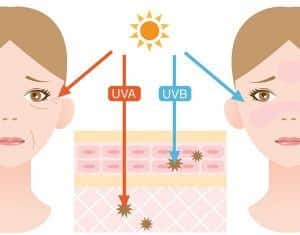community Health Nursing -national health problem ,impact over population and role of nurse to control of population.
NATIONAL HEALTH PROBLEM
The CDC's National Center for Injury Prevention and Control updated its Prevention Status Reports Monday, which ranks the biggest public health issues in all 50 states and the District of Columbia.
The Prevention Status Reports organize information on state public health policies and practices in a format that is easy to use for public health professionals, community leaders and policy makers. The reports allow these individuals to understand their state's status and identify improvement areas.
According to the reports, the 10 most important public health problems and concerns are (listed alphabetically):
- Alcohol-related harms
- Food safety
- Healthcare-associated infections
- Heart disease and stroke
- HIV
- Motor vehicle injury
- Nutrition, physical activity and obesity
- Prescription drug overdose
- Teen pregnancy
- Tobacco use
IMPACT ON OVERPOPULATION ON HEALTH OF PEOPLE
Human health is at risk as the denser the population; the easier airborne diseases can spread.The increase in population has led to issues like urban crowding and environmental changes that have resulted in the emergence of many infectious diseases. Increase in antimicrobial resistance proves to be an unexpected problem for diseases such as:
- Tuberculosis
- Malaria
- Cholera
- Dengue fever
- Overpopulation results in polluted water supplies. People die each year because of contaminated water-related disease. The viruses spread faster in a denser population which enables deadly mutations to continue, making the water unsafe for utilization.
 More the people, lesser the fresh air:With the increasing number of people travelling by their vehicle, there is a growing concern about the health impacts caused due to the traffic on the road. The toxic content in the air impacts the kids more than the adults. Today, the decrease in the quality of air has resulted in the majority of people suffering from respiratory problems such as:
More the people, lesser the fresh air:With the increasing number of people travelling by their vehicle, there is a growing concern about the health impacts caused due to the traffic on the road. The toxic content in the air impacts the kids more than the adults. Today, the decrease in the quality of air has resulted in the majority of people suffering from respiratory problems such as:- Asthma,
- Lung cancer
- Chest pain
- Congestion
- Throat inflammation
- Cardiovascular disease
- Respiratory diseases
 Here’s why you need to give population a thought right now.Soon, sunscreens won’t be enough to protect us from the harmful sunrays:Increased pollution has also led to a depletion of ozone layer. The ozone layer of the atmosphere no longer protects us from the harmful ultraviolet (UV) rays of the sun causing skin problems such as skin cancers and premature aging of the skin. UV rays also result in a host of eye-related problems such as cataract and blindness. Most of all, it weakens the human immune system.
Here’s why you need to give population a thought right now.Soon, sunscreens won’t be enough to protect us from the harmful sunrays:Increased pollution has also led to a depletion of ozone layer. The ozone layer of the atmosphere no longer protects us from the harmful ultraviolet (UV) rays of the sun causing skin problems such as skin cancers and premature aging of the skin. UV rays also result in a host of eye-related problems such as cataract and blindness. Most of all, it weakens the human immune system. Various other illnesses:The number of people migrating to the cities for jobs and prosperity increases daily. Concentrated energy use leads to greater air pollution with significant impact on human health, and automobile exhaust produces elevated lead levels in the urban air. Large volumes of uncollected waste create multiple health hazards like cancer, neurological disease, congenital malformation etc.Over population is the root of all other major problems. Population growth adds to the inability of governments to scale up health care systems and facilities. Hence, the need of the hour is to deal with the issue and come up with solutions to resolve the problem. The problem of overpopulation can only be solved by spreading awareness about family planning and education about overpopulation, enacting birth control measures and regulations, and providing universal access to birth control devices. Some of these measures can prove useful in ending the vicious circle of population growth and rising health threats. Read about the methods of contraception that can help control population growth.
Various other illnesses:The number of people migrating to the cities for jobs and prosperity increases daily. Concentrated energy use leads to greater air pollution with significant impact on human health, and automobile exhaust produces elevated lead levels in the urban air. Large volumes of uncollected waste create multiple health hazards like cancer, neurological disease, congenital malformation etc.Over population is the root of all other major problems. Population growth adds to the inability of governments to scale up health care systems and facilities. Hence, the need of the hour is to deal with the issue and come up with solutions to resolve the problem. The problem of overpopulation can only be solved by spreading awareness about family planning and education about overpopulation, enacting birth control measures and regulations, and providing universal access to birth control devices. Some of these measures can prove useful in ending the vicious circle of population growth and rising health threats. Read about the methods of contraception that can help control population growth.

Comments
Post a Comment